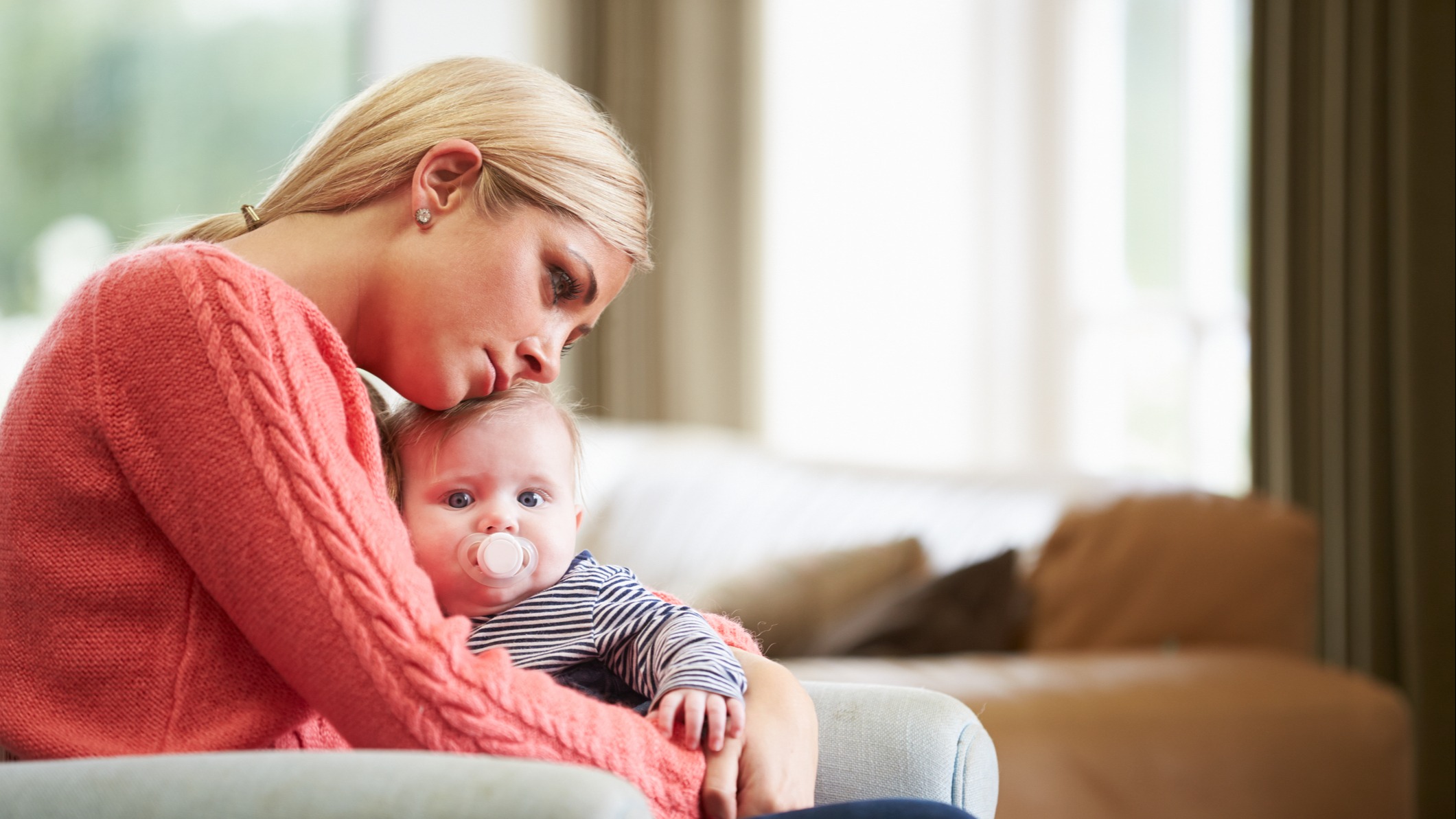
Postpartum psychosis doesn't happen as often as postpartum depression or anxiety. But it's still something that women need to be on the lookout for — since when it happens, it usually happens fairly quickly.
Even worse, it's something many new moms may be unaware of. While post-pregnancy doctor visits usually screen for depression, there isn't currently a good way to test and see if psychosis might crop up.
So, what is postpartum psychosis? It usually makes moms feel irritated and paranoid. Sometimes, delusional thoughts occur. According to Postpartum Support International, it happens in 1 to 2 out of every 1,000 deliveries. For families with a history of bipolar disorder or psychosis, the chances of having postpartum psychosis are greater.
Julie Shapiro was one mom who didn't expect to be diagnosed. She recently shared her story with Today in an attempt to bring more awareness to the cause. Julie's entire pregnancy ran smoothly — but her first hiccup was attempting to get her newborn daughter to breastfeed.
While there are plenty of excellent ways to feed your baby, many moms envision breastfeeding. Sometimes, doctors and nurses also push it, which can be even more overwhelming for a mother who's having difficulty. It's even harder after hearing stories of other new moms breastfeeding successfully — it's easy to think that you're the problem and that you're already failing your baby.
And that's exactly how Julie felt. "We're all, in this day and age, conditioned to breastfeed," she told the publication. "I was under the impression … this was what was best for my baby." But then something even scarier happened. As she fed her baby formula, she kept envisioning that it was filled with poison.
Strange beliefs are a sign that something bigger is brewing. But it's important to remember that postpartum women are fragile as is. Not only is motherhood overwhelming, but hormones make things more difficult. And lack of sleep doesn't help. Sometimes, it's easy to believe things without actually questioning them, which makes psychosis even more likely to creep in undetected.
Julie's thoughts got worse from there. "I was so worried somebody would take her from me or that I wouldn't be able to care for her and something would happen to her," she said. “I eventually started having these visions of her limp body crumbled up on the floor or hanging over the side of the chair."
Later, she got her diagnosis — those scary thoughts were postpartum psychosis. It's something that's talked about so infrequently that many women may not realize they have it. These thoughts can put even more pressure on mothers, especially since during those first months, most physical and mental energy is spent on the baby.
Of women who suffer from postpartum psychosis, approximately 5% end up committing suicide and 4% commit infanticide. It's not because they don't love themselves or their children — it's because the thoughts become so real that the moms enter a different reality in which their actions make sense. It's scary to know how easy it is to lose someone during this time.
It's also important to realize that not all delusions are dangerous. Just because your thoughts aren't quite as dark doesn't mean you should avoid seeing your doctor about it. Moms deserve to feel healthy and happy during this monumental time in their lives, and there should be no shame or stigma in getting help.
Mania is also linked to postpartum psychosis. So if you feel like your mood swings are getting out of control, it's important to tell someone and seek help. There are ways to tame symptoms and feel better.
"Some of the symptoms of delusion, hallucination and mania can be very acute so you have to be very in tune," Dr. Stephanie McNally, an OB-GYN at the Northwell Katz Institute for Women's Health, told Today.
It's important to know that this is only temporary. But that doesn't mean it's not important to get checked out right away. You should consider these thoughts, mood swings, and change of personality as an emergency situation. Your child needs a healthy mom, and you deserve to focus on your own health.
As for Julie, the help she got made parenting so much easier. "The doctor made me feel so much better. (He said) 'It's not uncommon. You're going to be OK. Your baby is going to be OK,'" she told Today. "Knowing that someone else was in charge started the process of me becoming better. And once the medication kicked in, I was fine and able to enjoy again."
These issues that spring up aren't your fault. But you need to recognize if they're becoming too much to handle and make the time to see someone. Motherhood is nowhere near as easy as social media often leads us to believe, and you're not alone.




